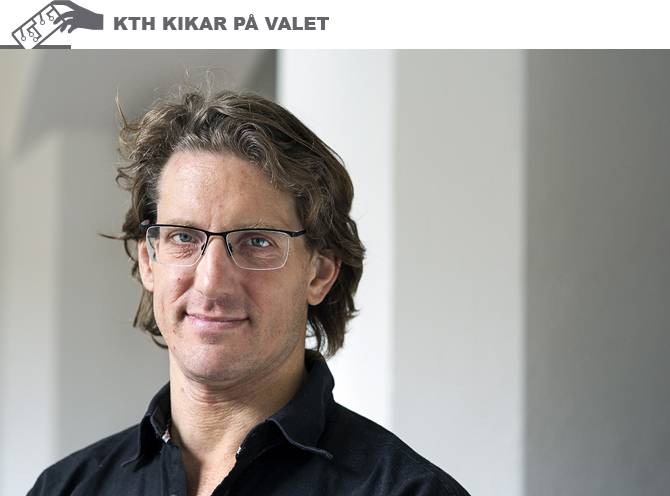
Voter privacy and choice jeopardised, researcher says
Does electronic voting put individual choice and secrecy at risk? One KTH researcher thinks so.
Svante Linusson, professor of mathematics, is raising doubts about the integrity of the electronic election process, which will be piloted in Sweden in 2018. He maintains that the concept is full of holes that can be exploited by anyone seeking to manipulate an election.
“The individual choice and secrecy of the vote are simply at risk,” Linusson says.
A voting process via the Internet makes it impossible, for example, to guarantee that voters aren’t being coerced, he says.
“Someone could conceivably be forced to vote with a gun to their head. And how do we know that the right person voted?
“I do not believe for a moment in the electronic election process. Certainly it makes it easier to count the votes, but the electoral process as a whole becomes much more vulnerable.”
Linusson says that even voting machines at polling stations, another proposal for 2018, are significantly more risky than today’s paper voting system.
He says that hackers can manipulate data; and even without interference the machines can still make errors in the counting.
“Of course there can be cheating and errors in a paper-based vote counting, but then the cheating is limited in scale, to some people in a given voting station, instead of the whole country being affected by a few clicks.
“I'm skeptical, and I hope the politicians drop the idea of electronic voting after testing it,” Linusson says.
Katarina Ahlfort